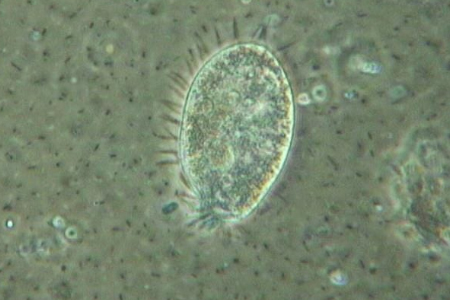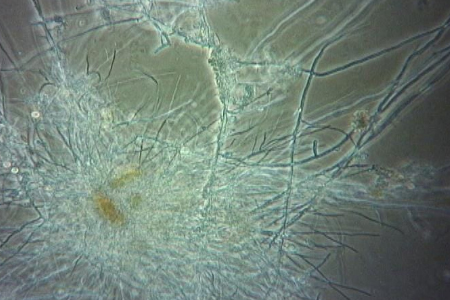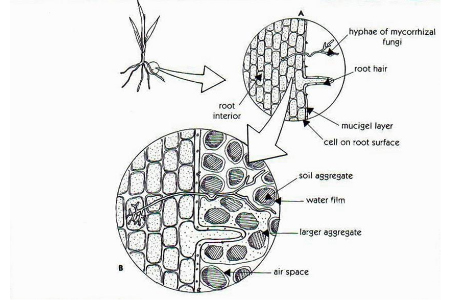
Role of Soil Bacteria: Update and Revision
Microbes in the soil are directly tied to nutrient recycling especially carbon, nitrogen, phosphorus, and sulfur. Bacteria are a major class of microorganisms that keep soils healthy and productive.
- Fact Sheet -
Microbes in the soil are directly tied to nutrient recycling especially carbon, nitrogen, phosphorus, and sulfur. Bacteria are a major class of microorganisms that keep soils healthy and productive.
- Fact Sheet -

Role of Soil Fungus: Update and Revision
Fungi are an important part of the microbial ecology. The majority of fungi decompose the lignin and the hard-to-digest soil organic matter, but some fungi consume simple sugars. Fungi dominate in low pH or slightly acidic soils where soils tend to be undisturbed (Lavelle & Spain, 2005). Fungi break down the organic residues so that many different types of microbes can start to decompose and process the residues into usable products.
Fungi are an important part of the microbial ecology. The majority of fungi decompose the lignin and the hard-to-digest soil organic matter, but some fungi consume simple sugars. Fungi dominate in low pH or slightly acidic soils where soils tend to be undisturbed (Lavelle & Spain, 2005). Fungi break down the organic residues so that many different types of microbes can start to decompose and process the residues into usable products.

Role of Arbuscular Mycorrhizal Soil Fungus
Arbuscular mycorrhizae (AM) fungi are a type of fungi that infect the root of the plant and help plants to survive. There are an estimated 100 species of AM fungi (Brady and Weil, 2009). AM fungus typically have highly branched tree-like structures that form within the root cells and branch out into the soil to search for plant nutrients.
Arbuscular mycorrhizae (AM) fungi are a type of fungi that infect the root of the plant and help plants to survive. There are an estimated 100 species of AM fungi (Brady and Weil, 2009). AM fungus typically have highly branched tree-like structures that form within the root cells and branch out into the soil to search for plant nutrients.

Crop rotation and Management Practices Effects on Arbuscular Mycorrhizal Fungus (AMF)
Modern cropping rotations and management practices have an effect on microorganisms in the soil. In a typical corn and soybean rotation, live plants and active roots are present less than a third of the time during a calendar year (Magdoff and van Es, 2000).
- Fact Sheet -
Modern cropping rotations and management practices have an effect on microorganisms in the soil. In a typical corn and soybean rotation, live plants and active roots are present less than a third of the time during a calendar year (Magdoff and van Es, 2000).
- Fact Sheet -

